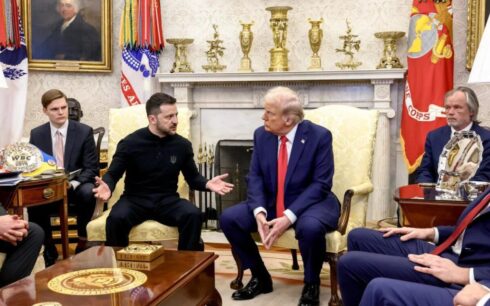Pakistan’s parliament was dissolved by the president on Prime Minister Shehbaz Sharif’s advice late Wednesday night setting the stage for a national election amid political and economic crises.
The advice came three days ahead of the parliament’s five-year term, which expires on Aug. 12. It will be followed by a caretaker administration to be picked by Sharif and an opposition leader in the outgoing parliament to hold new elections in 90 days.
The premier said he would start discussions with the opposition leader on Thursday to pick from candidates recommended by both sides to nominate as caretaker prime minister.
The vote, however, could be delayed several months with the election commission set to start redrawing hundreds of constituencies based on a fresh census.
Analysts have said any delay in the election could fuel public anger and add to uncertainty in the nuclear-armed nation.
Cricketer-turned-politician Imran Khan, founded the PTI party (Pakistan Tehreek-e-Insaf) which won the 2018 election. He was sworn in as prime minister soon after, but he has been at the heart of political turmoil since he was ousted as in a no-confidence vote last year, raising concern about Pakistan’s stability.
He has since been convicted and jailed in a graft case, following which he has been barred from taking part in any election for five years.
Khan has accused the powerful military, which has ruled Pakistan since independence in 1947, of being responsible for his ouster, a charge the military has denied.
Khan was replaced by Sharif, who has been grappling with a debilitating economic crisis and historically high inflation levels as the government implemented painful reforms to secure funding from the International Monetary Fund (IMF).





